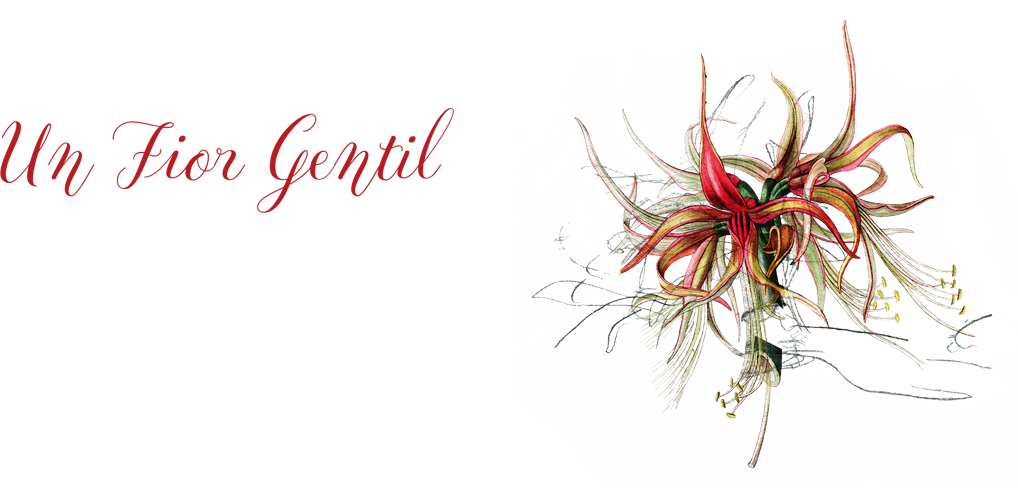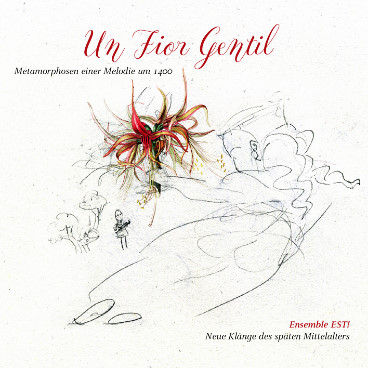About the music
BY WALTER WAIDOSCH
The bow becomes taut. The arrow hits a note high above the tonic – an eagle in flight, the la. The ratio 2/3. It swoops downwards only to rise again, the fifth above the tonic re. From there it falls, climbs back up. Bends a very small semitone upwards – una nota sopra la – to the tone of yearning, only a ninth of a whole tone in size. Plummets downwards to merge finally with the tonic. The birth of a primal melody.

Walter Waidosch
"Un fior gentil" ‒ an exquisite blossom. A woman sits by the water. Valentina Visconti sings to her harp beside the fountain of the charterhouse of Pavia. And around her, all who aspired in Italy, France and Spain – whether as musicians, poets, artists or philosophers – to contribute to the cultural apogee of the Middle Ages. All guests of Galeazzo Visconti, the ruler of Milan, her father.
A noble flower appeared to me
– O, the first breath,
a twofold rhyme
twice fifty, then again the first –
and straightway vanished.
Angel-like she came, and came again,
and stood there, full of fervour, judging me.
Then she began to bestow upon me her sweet fruit.
Woe, that in all the world
now such a flower is nowhere to be found,
however carefully one looks.
Make of that what you will.
The primal melody appears as a simple song, sung by children. In the sound of an organetto, in the Gloria of a mass by Zacharias da Teramo. And then in his ballata with the enigmatic image of an amaryllis.

Un Fior Gentil - an old manuscript
In search of this enigma of the fior gentil, the exquisite blossom, we set off on a musical journey through the cultural centres of Italy and Provence, finding its first manifestation in the opening of the Marian antiphon Salve Regina. The dance musicians of Tuscany invoke it in their "Balli", as do the singers of laude in Cortona and Siena. Florentine poet-musicians such as Landini and Don Paolo play and sing many of their magical ballate and madrigali about metamorphoses of melody at the feasts and evening parties of the nobilita, as described by Sacchetti, Alberti and Boccaccio. And in the artful, filigree webs and sound labyrinths of the ars subtilior at the Visconti courts of Pavia and Milan, in Bologna and in the papal palace of Avignon, it runs like Ariadne's thread through the music of Zacharias da Teramo, Philipotus da Caserta, Matheo da Perugia and Jacopo da Bologna, in whose Aquil'altera the melody takes wing as a proud eagle high in the sky.
From Bernardus de Cluny, one of the papal singers, we have the motet Apollinis eclipsatur. As in the towering architecture of a late Gothic cathedral, the mundane joins with the eternal above the tenor of the spiritual basis (In omnem terram): a list of the papal musicians noting their special talents is given in the duplum. And above it, the stars of the divine Zodiac, Pythagoras and Boethius, draw their orbits in the cosmos of sounding numerical proportions with Bernard de Cluny.


